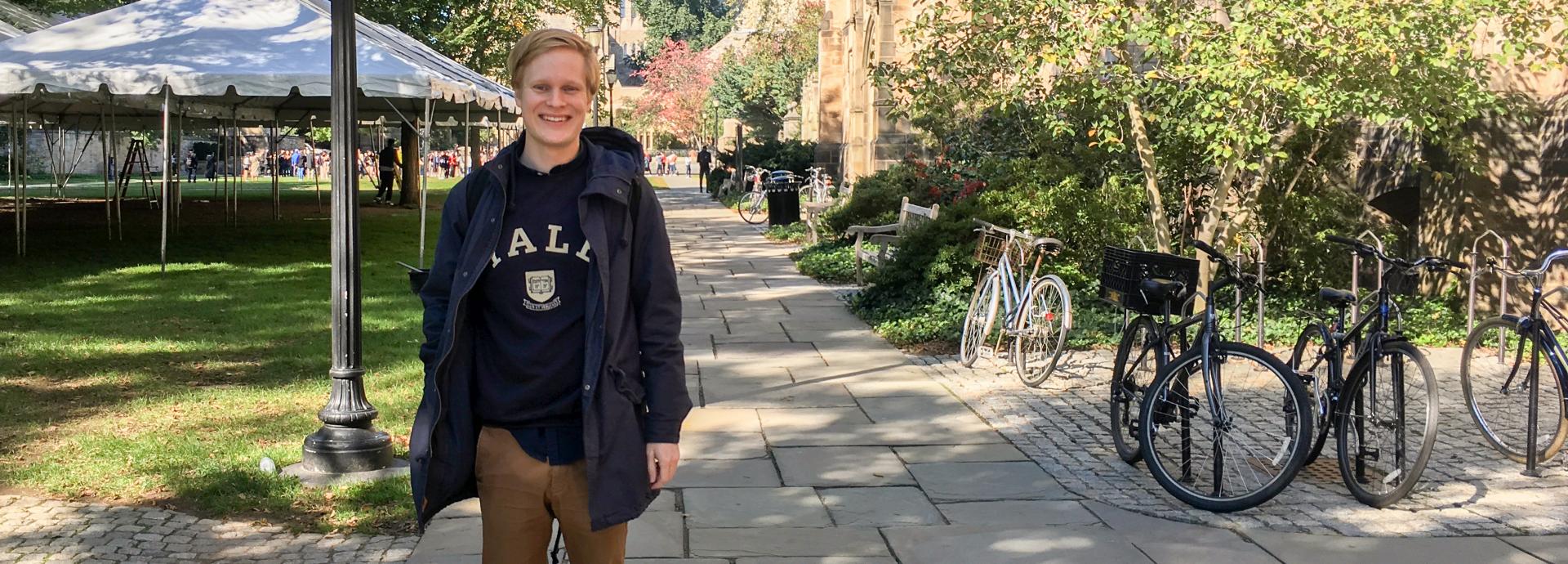

Take my story as an example. I had a privileged childhood in many ways, but my family income qualified me for a foundation scholarship for low-income students during my undergraduate studies in Finland. However, a full-tuition departmental scholarship and a Fulbright Finland grant enabled me to finance a two-year master’s degree at Yale.
Today, coming to Yale from a socio-economically disadvantaged background is not exceptional. Over 1 000 of the current 6 000 undergraduates qualify for federal Pell Grants for low-income U.S. students (please note that most foreign citizens are not eligible for federal student aid such as Pell Grants). Thanks to financial aid, 86 % of recent undergraduates also graduated without any debt.
My point here is not to ignore unequal access to education and people struggling with crippling student debt. I simply stress that Finns lucky enough to be admitted to a U.S. university providing generous financial aid to international students may be able to finance their studies without massive borrowing regardless of family background.
Financial aid in the U.S. is generally based on need or merit. Universities award need-based aid solely based on family income, whereas merits such as academic and professional success determine the recipients of merit-based aid. Some universities offer athletic scholarships for undergraduate student athletes in varsity sports.
At Yale, all undergraduate financial aid is need-based. Families earning less than USD 75 000 annually are not required to pay any share of tuition or fees. Parental shares increase gradually the higher the family income. Students are not in principle required to take out loans but work part-time to pay for the share of living expenses that their scholarships do not cover. In practice, the median net price that more than 50 % of undergraduates receiving need-based financial aid from Yale pay for an academic year is around USD 11 000 (EUR 9 300 as I write this). This amount includes all expenses such as tuition, housing, meals, and books.
Graduate financial aid follows a different logic. Doctoral students at Yale normally receive full-tuition scholarships and living stipends. Funding opportunities are typically more limited for master’s students but funding varies greatly between programs. My master’s program at the Jackson Institute for Global Affairs offers merit-based scholarships from half-tuition to full-ride to all accepted students who apply for financial aid. In contrast, some master’s programs provide virtually no scholarships. As a rule of thumb, degrees in high-paid occupations such as law, medicine, and business are most expensive. Some programs offer loan forgiveness plans to graduates choosing lower paying public interest careers.
As one of the wealthiest U.S. universities, financial aid at Yale is clearly not representative of the U.S. at large. Applicants should do extensive research to identify programs where they might receive significant financial aid. Students should also apply to several programs. For instance, my financial aid offers from universities ranged from full tuition to zero dollars. A myriad of external funding sources such as the Fulbright Finland Foundation also help finance studies in the U.S.
"Studying at Yale was the most intellectually exciting and professionally inspiring experience of my life. I hope that more Finns, regardless of family background, will consider applying in the future."
All information in this article is based on the author’s personal understanding and statistics published by Yale. For official information on financial aid at Yale, see https://finaid.yale.edu/.